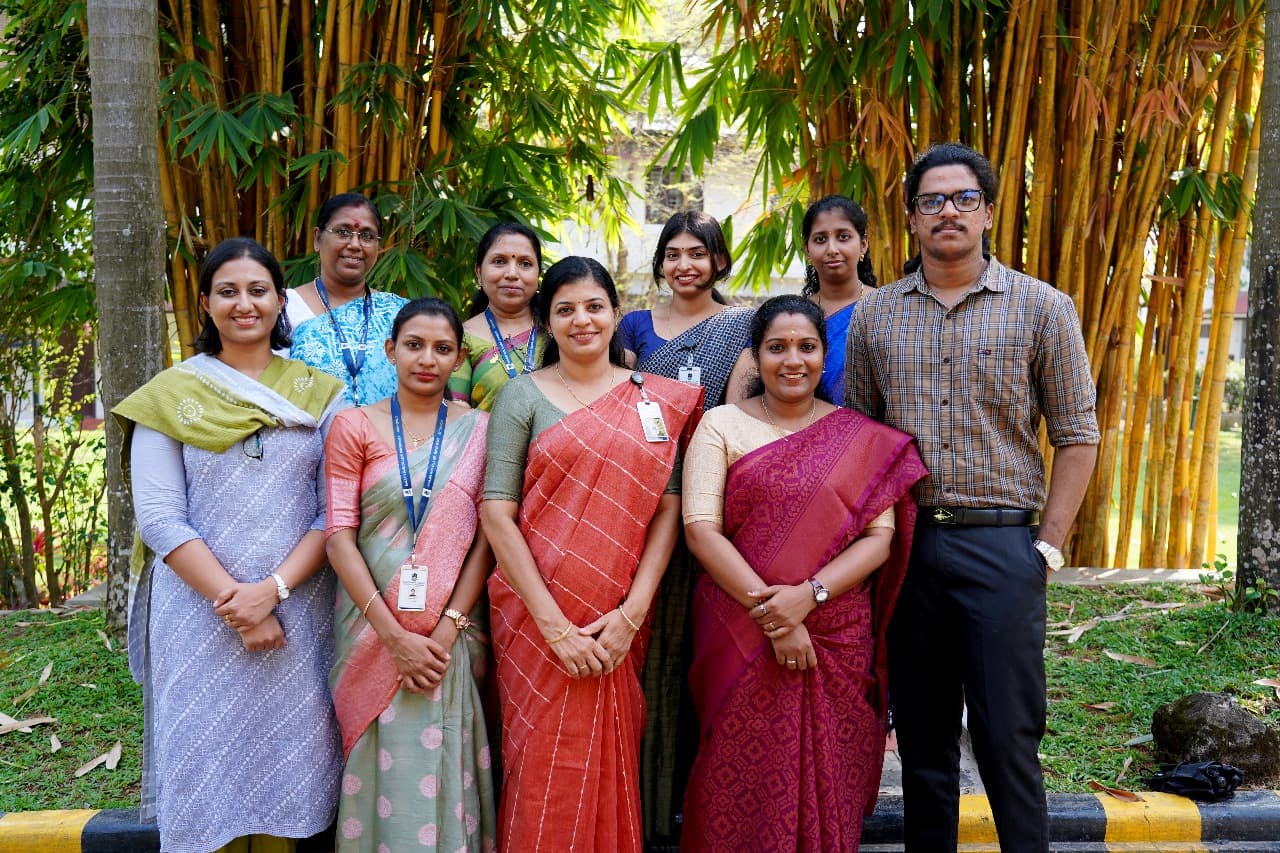- Supplementary Allotment 2 for Various PG Programmes Published on 11/07/2025
- Supplementary Allotment 2 for Various UG Programmes Published on 09/07/2025
- End Semester Examination for Second Semester MBA (Regular) Programme (2024 Admission) scheduled on 09-07-2025 (Wednesday) FN is postponed to 14-07-2025 (Monday) FN

Psychology

The Department of Psychology at Bharata Mata College, Thrikkakara, was established in 2024 with the launch of the B.Sc. Psychology program (FYUGP). As one of the newest academic departments in the college, it was founded with the vision of fostering academic excellence and promoting mental health awareness among students and the broader community. Despite being newly formed, the department has quickly established itself as a dynamic center of learning, blending foundational knowledge with practical skills.
A significant milestone is the planned commencement of the M.Sc. Psychology program in the academic year 2025, which will mark a major step forward in the department’s academic offerings and research capabilities. The department emphasizes experiential learning through its counseling lab, outreach initiatives, and collaborations with mental health professionals.
From its inception, the department has aimed to develop competent, ethical, and empathetic professionals equipped to address psychological challenges in diverse settings. It also actively encourages student involvement in seminars, mental health campaigns, and community-based projects.
With a dedicated faculty team and a strong emphasis on holistic education, the Psychology Department of Bharata Mata College is poised to become a leading center for psychological studies in the region, shaping the future of mental health education and practice.
Our VISION
To be a center of excellence in psychological education, research, and practice, nurturing compassionate and skilled professionals who contribute to individual well-being and societal progress
Our MISSION
The program aims to provide a strong academic and research foundation in psychology, integrating theory with practical experience, fostering interdisciplinary inquiry, and developing analytical, ethical, and communication skills to prepare socially responsible leaders in the field
- Highly qualified and interactive faculty members.
- Strong student-faculty engagement and mentorship
- Emphasis on interdisciplinary research and societal issues.
- Encouragement for student participation in academic publications and conferences.
- Offers vibrant specializations.
- Well-structured curriculum and updated syllabus.
- Access to academic clubs, practical labs, and fieldwork opportunities.
- Active student clubs and extracurricular activities.
- Participation encouraged in NSS and social outreach programs.
PO
- Domain Knowledge
- Communicative Competence
- Applying Modern Technologies
- Reflective response to Ethical and Social Issues
- Sustainability Values
- Critical Thinking and Problem-Solving
- Entrepreneurship
- Teamwork and Leadership
- Self-Directed and Lifelong Learning
PSO
- Apply psychological theories and principles to understand, analyze, and address individual and group behavior in diverse settings, facilitating effective interventions and solutions.
- Integrate knowledge from various psychological subfields, such as cognitive, social, developmental, and clinical psychology, to develop a comprehensive understanding of human behavior and mental processes.
- Utilize quantitative and qualitative research methods, including experimental designs, surveys, and case studies, to investigate psychological phenomena, collect data, and draw evidence-based conclusions.
- Demonstrate effective communication skills and leadership abilities in conducting research, presenting psychological concepts, and collaborating with multidisciplinary teams to promote mental health and well-being.
- Engage in community service and outreach activities to raise awareness about mental health issues, advocate for mental health needs, and provide support to individuals and groups, demonstrating a commitment to helping others and fostering a healthier community.
- Employ multidisciplinary knowledge, including an understanding of physiological, social, and cultural factors, to enhance psychological assessments and interventions, ensuring a holistic approach to mental health and well-being.
- Psychology Lab
